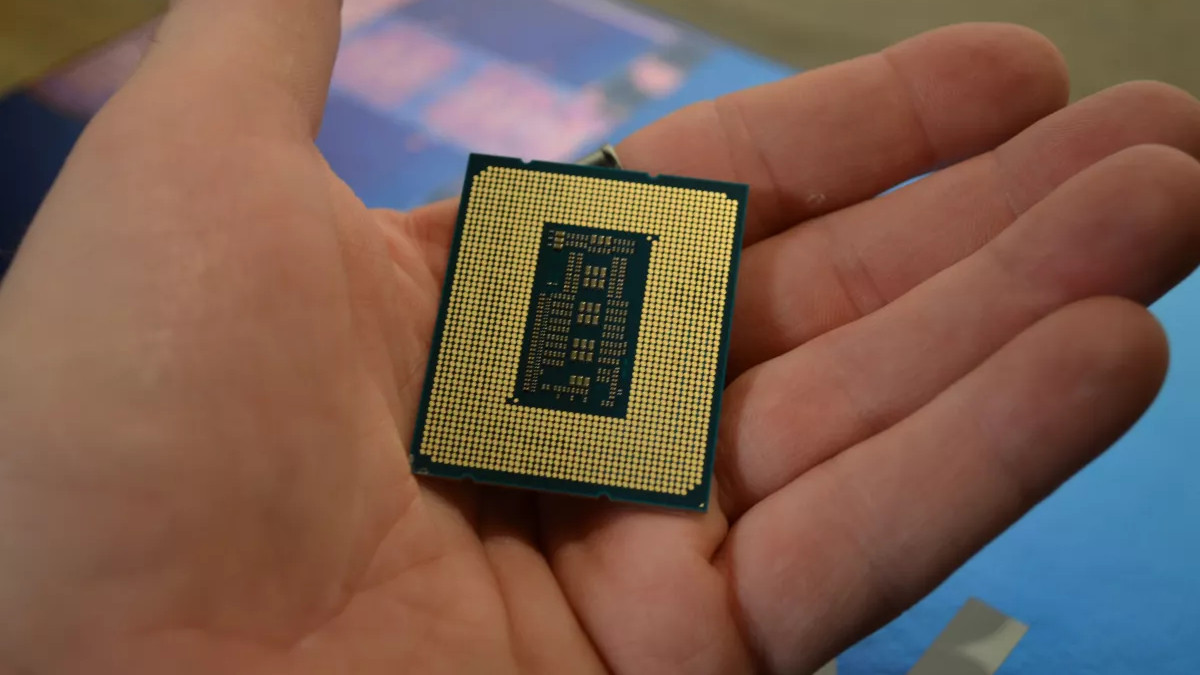Intel set to reveal PC roadmap – will we hear about new CPUs?
Intel will discuss what’s next for the PC, and what will drive future growth

Sign up for breaking news, reviews, opinion, top tech deals, and more.
You are now subscribed
Your newsletter sign-up was successful
Intel is set to reveal its plans for the PC arena next week, and we’ll hopefully get some interesting nuggets of information from the chip giant.
The presentation on all things PC will come via a webinar that takes place on December 16 at 7.30 am PT (10.30 am ET, 3.30 pm UK time), with Intel spilling the beans on its PC platform roadmap, as Tom’s Hardware flagged up.
That means we’ll get to see future products that we don’t know about yet, or at least haven’t had info spilled on them officially, although the rumor mill may have already imparted details here and there,
Intel has had a rocky time of things lately in terms of falling profits and having to announce big plans for streamlining and job losses, partly due to the slump in the PC market this year.
Perhaps unsurprisingly then, the other major topic Intel plans to inform us on is the size of the PC market and “growth drivers” therein, presumably with some optimism to be witnessed on the latter front, rather than the doom and gloom of falling PC sales that we’ve become used to in 2022.
Analysis: Piecing together the CPU jigsaw puzzle, perhaps…
Of course, PC sales are a cyclical thing, and we’ve had major slumps in sales of computers and laptops before – with the industry inevitably recovering. That said, the possible depth of the recession and economic chaos that currently abounds is worrying, and could usher in a longer downturn in PC shipments - we certainly still feel that’s a danger. It should be interesting to hear what Intel has to say in terms of factors driving growth, for sure.
As to what we might hear regarding Intel’s future hardware, we already know that Team Blue is on track with its aims for ushering in new CPUs at an ‘unprecedented pace’ no less – because the chip giant just told us.
Sign up for breaking news, reviews, opinion, top tech deals, and more.
That means next-gen Meteor Lake is still on track for 2023, but what we might be treated to further info about is Arrow Lake, the generation after Meteor, and possibly what lies beyond. And we may well hear more about a focus on efficiency cores, as rumor has it that the big push with those ‘little’ (low-power) cores in current-gen Raptor Lake is going to be continued in Meteor Lake.
Maybe we could even see something about the rumored Raptor Lake Refresh CPUs that might be around next year. If Meteor Lake is upping the count of efficiency cores, and cutting performance cores to 6 for better overall power efficiency, then those processors might represent new low-end and mid-range models – and maybe Raptor Lake Refresh will fit in as the new top-end for 2023 (with the full 8 cores, of course).
Or Intel could just leave the high-end Raptor Lake models (13700K, 13900K, and incoming 13900KS) in place, although that’ll be met with disappointment if it pans out this way, no doubt. (Arrow Lake would need to follow pretty swiftly with heavyweight Core i9/i7 offerings, if this is indeed the plan).
Whatever the case, hopefully Intel will reveal how the CPU jigsaw puzzle fits together next week, and we’ll hear something about the plans for future generations further down the line than Arrow Lake. (We’ve been told Lunar Lake will follow next, but we know precious little about it – or what might come afterward, of course).
We might learn a bit more about what’s in store for Arc GPUs, perhaps, which have got off to a very shaky start this year, although at least the graphics driver is finally coming together into some sort of decent shape, so there’s hope for the future yet.
Darren is a freelancer writing news and features for TechRadar (and occasionally T3) across a broad range of computing topics including CPUs, GPUs, various other hardware, VPNs, antivirus and more. He has written about tech for the best part of three decades, and writes books in his spare time (his debut novel - 'I Know What You Did Last Supper' - was published by Hachette UK in 2013).